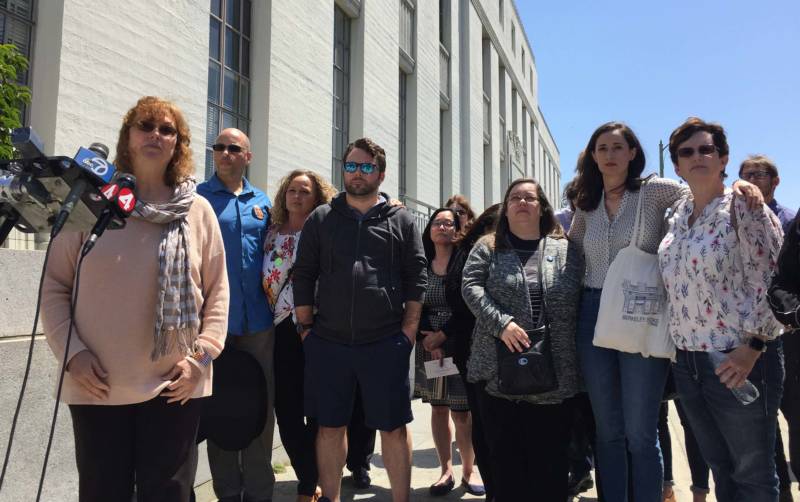James also argued that Almena almost immediately violated the terms of the lease he signed in November 2013, by allowing people to live there.
The defense, in closing arguments Tuesday, pointed to testimony by many former tenants and visitors who said they felt the Ghost Ship was safe.
The defense also argued that personnel from several agencies, including Oakland's police and fire departments, as well as Child Protective Services, had passed through the warehouse dozens of times in the years leading up to the fire and had never flagged the building, never red-tagged it or issued any eviction notices.
Both Curtis Briggs, who represents Harris, and Tony Serra, who represents Almena, also argued Tuesday that testimony by at least seven witnesses pointed to arson as the cause of the deadly conflagration, and that Almena and Harris couldn't have done anything to prevent it.
Prosecution Rebuts Defense's Closing Arguments
On Wednesday, Alameda County Deputy District Attorney Autrey James gave his rebuttal to the defense's closing arguments, disputing testimony that the Ghost Ship was safe.
"If the place was safe, why aren't those 36 people here with us today?" James asked, while showing an image of all 36 victims on a court TV. "Because it was a death trap to 36 people."
He asked why Almena had suggested to Ghost Ship tenants that they buy fire extinguishers, and why there were rules against open flames in the warehouse.
James then went on to rebut a list of arguments posed by the defense on Tuesday.
Pointing to a blank black screen on an unused court display, James said it represented the amount of evidence supporting arson as the cause of the blaze.
"There is no evidence of reasonable doubt because of arson," James said. "What do reasonable people do in a fire? They run out. That's what reasonable people do."
In part, the jury's instructions say that if previous testimony regarding arson raises a reasonable doubt as to the defendants' guilt, then they must find the defendants not guilty.
